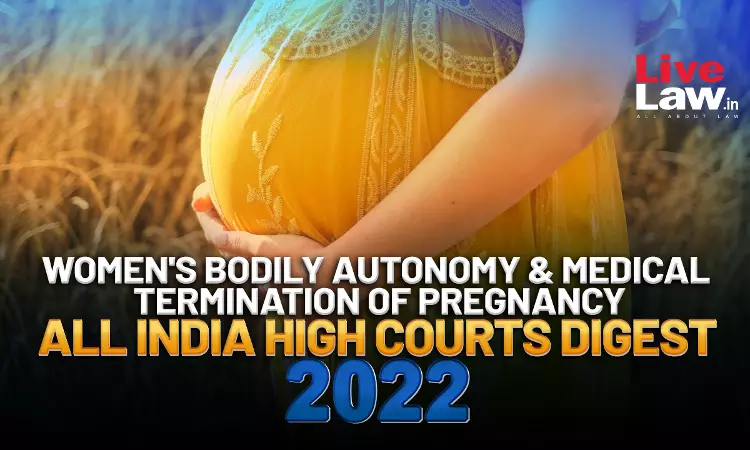Women's Bodily Autonomy & Right To Medical Termination Of Pregnancy: All India High Courts Digest 2022
LIVELAW NEWS NETWORK
5 Jan 2023 1:45 PM IST

Next Story
5 Jan 2023 1:45 PM IST
LiveLaw reported almost 7,000 orders and judgments in 2022 from various High Courts across the country. Here are some important decisions relating to women's bodily autonomy and right to medical termination of pregnancy:1. Allahabad High Court Allows Termination Of 23-Week Pregnancy Of 12-Year-Old Rape Survivor To 'Free Her Of The Trauma & Social Miseries'Case title - Ms. X Thru. Her...
